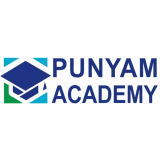This informal CPD article Benefits of ISO 21001 compliance to educational organizations was provided by Punyam Academy, an industry leader in training of international compliance standards.
Education is an important aspect of life that plays a significant role in the development of society. Day-by-day the needs and expectations of learners are changing, and the ways and means of education are also evolving to keep pace with the rapid changes. With increasing expectations of learners, the educational organizations now need to adapt to new ways of working, while at the same time providing a high level of educational services.
As every educational organization wants to improve the way it operates, whether that means enhancing teaching services or meeting learners' and other beneficiaries' requirements, improving learners and other beneficiaries’ satisfaction, increasing market share, or driving down costs, an effective management system is required for such organizations. In addition, educational organizations also need to evaluate the degree to which they meet the requirements of learners and other beneficiaries, as well as other relevant interested parties and to improve their ability to continue to do so.
To meet such needs of educational organizations and the expectations of learners and other beneficiaries, the International Organization for Standardization (ISO) published the ISO 21001 standard on 1st May 2018.
What is ISO 21001?
ISO 21001 is world’s first International Standard that specifies requirements for an educational organizations management system (EOMS). This international standard provides a common management tool to any organization that is involved in curriculum-based teaching, learning or research. ISO 21001 is applicable to such organizations regardless of their type, size, geographical location or method of delivery.
Using ISO 21001 EOMS, such organizations can improve their processes and address the needs and expectations of those who use their services. The requirements of ISO 21001 are aligned with ISO 9001:2015 requirements for quality management systems; however, ISO 21001 is a standalone standard which provides a specific framework for educational organizations. The focus of ISO 21001 is on the specific interaction between an educational organization and its learner and other beneficiaries.
The importance of ISO 21001 to educational organizations
Educational organizations worldwide can get benefits from the standardized management systems based on ISO 21001 requirements. Implementation of and compliance to ISO 21001 standard requirements will not only help educational organizations demonstrate their ability to support the acquisition and development of competence through teaching, learning or research but also enhance satisfaction of learners, other beneficiaries and staff through the effective application of EOMS.
As 21001 promotes the adoption of “process approach”, application of “plan-do-check-act” (PDCA) cycle and “risk-based thinking”, educational organizations will be able to understand, manage and control interrelated processes of the system in order to enhance their overall performance. This will also help them in achievement of effective process performance and improvement of processes based on evaluation of data and information of the system. They will be able to address the risks and opportunities that can affect conformity of their educational products and services and the ability to enhance learner and other beneficiary satisfaction.
What benefits will educational organizations get?
ISO 21001:2018 compliance of any educational organization is beneficial for the organization, learners and all interested parties. ISO 21001 compliance enables educational organizations to deliver a more impactful and relevant learning experience that is aligned with the organization’s own mission and vision. Learners will also benefit as the education service they receive will be more personalized and suited to their needs, leading to better learning outcomes.
Ten major benefits of ISO 21001 compliance are:
1. The objectives and activities of the educational organization will be more aligned with policy, mission and vision statement;
2. The organization will be able to provide Inclusive and equitable education for all;
3. Learners, including learners with special education needs and distance learners will get more personalized learning;
4. Organization can demonstrate and increase effectiveness and efficiency through consistent processes and evaluation tools to;
5. Increased credibility of the organization leading to more market share and profitability;
6. Organizations will be able to demonstrate their commitment to effective quality management practices;
7. A culture for organizational improvement will be developed;
8. Widened participation of interested parties;
9. Stimulation of excellence and innovation.
10. Applicable regional, national, open and proprietary standards will be harmonized within an international framework.
Considering the above-mentioned benefits, we can conclude that ISO 21001 compliance and certification will be one of the most significant achievements today for educational organizations. It can be also useful to learners and all interested parties as a yardstick for knowing the quality of educational services.
We hope this article was helpful. For more information from Punyam Academy, please visit their CPD Member Directory page. Alternatively please visit the CPD Industry Hubs for more CPD articles, courses and events relevant to your Continuing Professional Development requirements.













